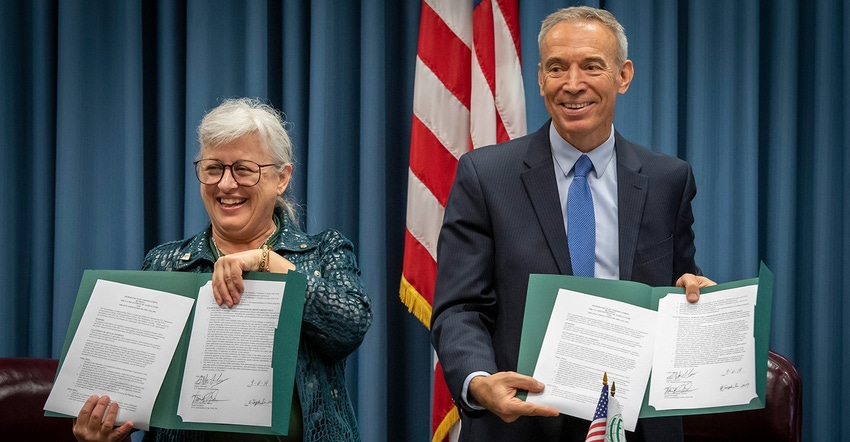September 18, 2019

“Peace through understanding” is a lofty goal — but since World War II, that’s the aim of the International Farm Youth Exchange, which today is know as IFYE Association of the USA Inc. Part of that understanding comes from youth traveling to foreign lands to live for an extended time, making new connections with people in those countries. Recently, IFYE made a different connection, with USDA.
“This is big news because, while the IFYE program started 70 years ago under the auspices of USDA and 4-H, that ended in 1992,” explains Victoria Fehrmann Warren, president, IFYE. “That’s when 4-H withdrew its recognition of the [exchange] program, so the program has shrunk quite a bit because of that.”
She recalls a time when two IFYE representatives from every state made a multiweek trip to another country to live with a host family. Today, the number is more like six to eight a year. But USDA changed that in early September, with a new memorandum of understanding that supports IFYE reconnecting with Extension to recruit new youth for the program.
Warren explains that the early break with 4-H came when that organization decided to focus on youth up to age 18, while IFYE works with youth ages 19 and older. This new relationship creates opportunity for IFYE, which will remain the sole sponsor of the program. “But we will now again have links with Cooperative Extension,” she remarks.
2-way program
IFYE is designed to create a cultural sharing of youth going out of the United States, and youth coming in. It’s a cultural sharing program, where students who make the trip can connect with host families and live day to day in another country. The new relationship with USDA should help IFYE work with Extension offices to identify local host families.
Warren notes that when the 1992 break with 4-H happened, some states maintained their connection with the youth exchange program. “Kansas is a good example of a state that collaborated with the IFYE program and the 4-H’ers,” she observes.
The new memorandum of understanding will help the two organizations establish a general framework for cooperation. Through the agreement, IFYE will continue its work with the next generation of young people by providing them with the tools they need to better understand international cultures, with a focus on agriculture. USDA will identify mutual short- and long-term interests, including information sharing and professional development opportunities for IFYE and IFYE alumni.
Warren is optimistic about the chance to work with county Extension and land-grant universities going forward to identify new opportunities. She adds that this program reaches beyond traditional 4-H and FFA programs.
“Some kids never get involved in 4-H or FFA. With IFYE, they can participate and learn something while they are gone,” she says. “This is a cultural exchange, where they are with host families — and they see the life of the host families, and what it’s like to be in the culture.”
Warren notes that many IFYE participants have “aha moments,” where they learn “Wow, it’s really different, but nothing is wrong with that” when living with a host family.
Warren, who calls participants “Iffies,” makes an observation: “Many IFYEs [Iffies] are in the country for a while, so they get past those feelings that what they’re seeing is odd or strange. Instead, they see that this is what they are and who they are. We find IFYEs more accepting of other cultures of the world in general, more tolerant of uniqueness. And employers today are looking for these types of candidates.”
You can learn more about the program at ifyeusa.org.
About the Author(s)
You May Also Like






